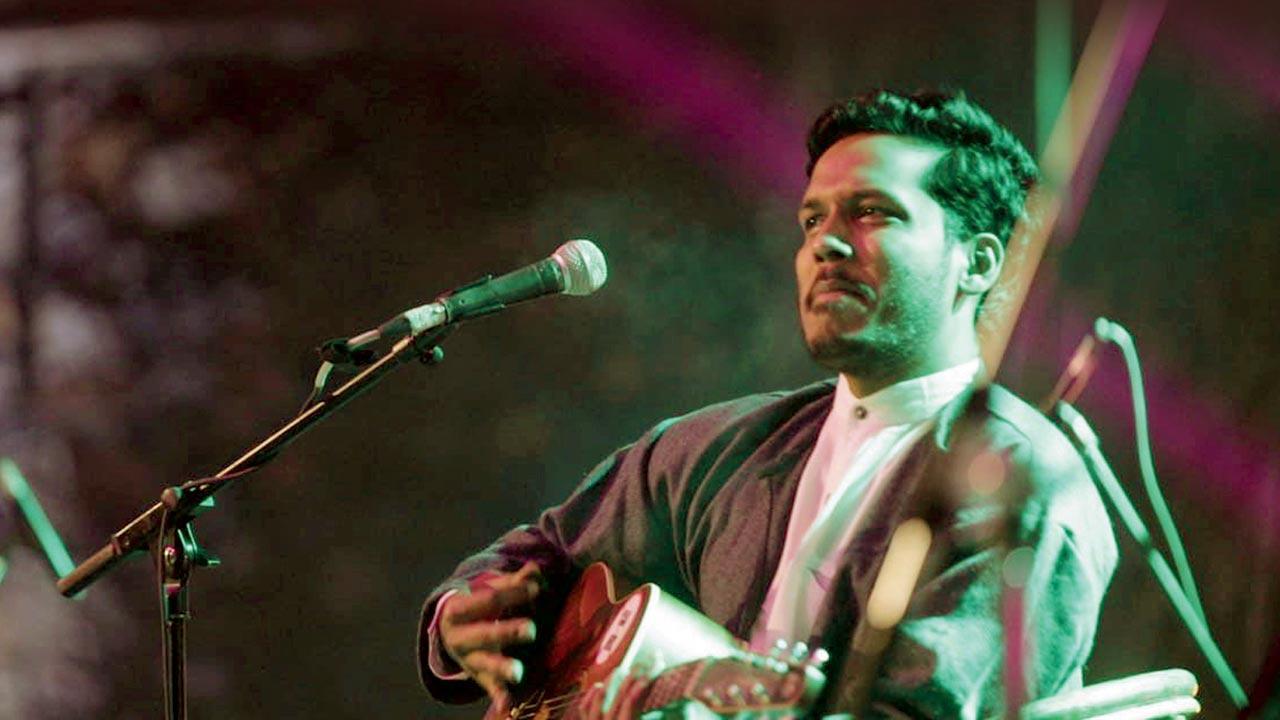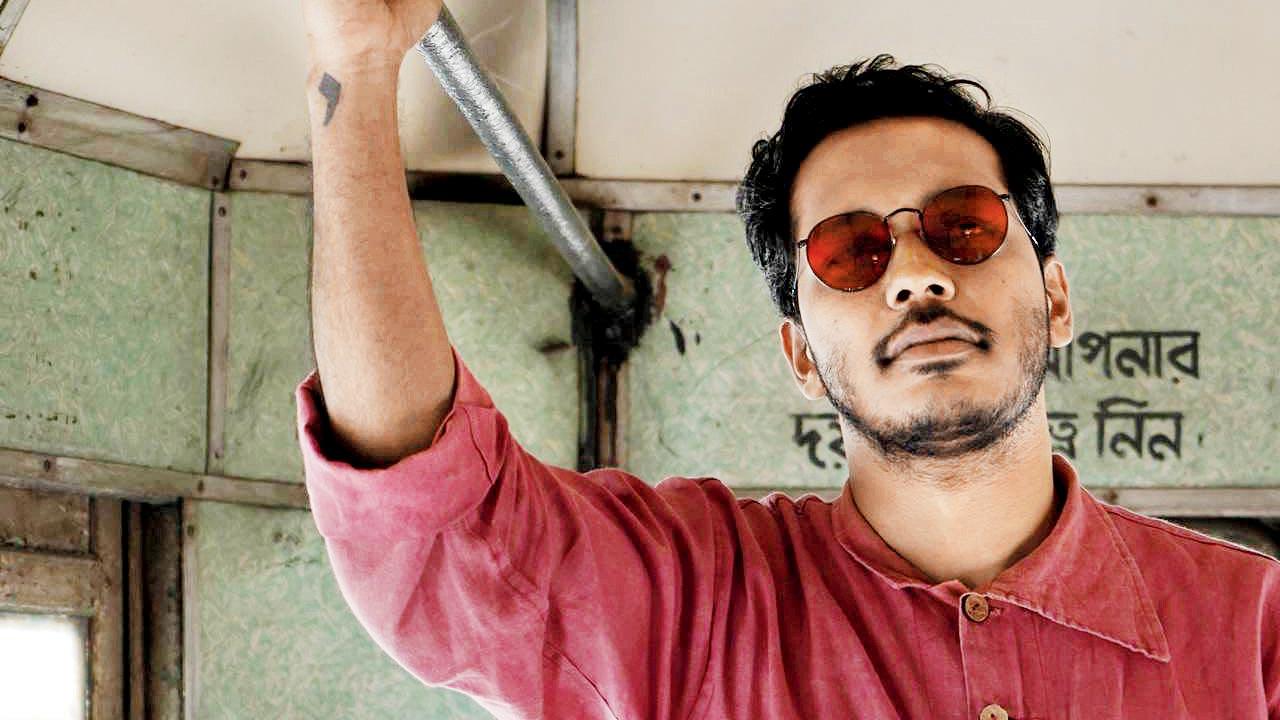This weekend, Rahat Indori’s son will take the stage at Prithvi Theatre to orchestrate the union of two diverse but strangely similar forms of expression

Sameer Rahat
When it comes to expression, Urdu ghazals and blues music are separated by a few centuries and continents. While one genre was born and nurtured in the Indian sub-continent, the other traces its origins to the dark period of slavery in the United States of America. Yet, composer-lyricist Sameer Rahat believes they have a similar purpose — to tell a story.
ADVERTISEMENT
Rahat’s upcoming show, Urdu Blues Music And Poetry, at Prithvi Theatre, Juhu, this week promises to be an example of this unlikely union. The performance consists of blues compositions with Urdu lyrics, accompanied by some poetry recitations. Hence the name Urdu Blues, he explains.

A still from Rahat’s video Jugnu hote hain
As the son of famed Urdu poet, Rahat Indori, and educator-activist, Seema Rahat, the influence of Urdu poetry on the composer was inevitable. It only built the foundation upon which his later fascination for the blues grew. “At the core is the idea of what a ghazal is; it tells the story. Blues has always been about telling a story. Any BB King song is about a story. I felt that there is a certain connection between ghazals and blues.”
His performance is built around this connection between the two disparate song forms. Another deep connect, he explains, is the dream of social revolution in both forms. From Allama Iqbal, Faiz Ahmed Faiz, Ahmed Faraz to Dushyant Kumar, Urdu poetry has been used as an expression for social justice and change. “Blues, of course,” Rahat adds, “is the music of the oppressed. Their pitch is high because they worked in the mills, mines, and in basements. It was an escape from their work and hard labour. Though it became a style of high-pitched vocals, it was not intentional.” He explains saying, “Somehow, I felt that the spirit of blues was truly being expressed with the ghazals.”
There is some truth to it. Most ghazals have couplets that tell the story around a singular emotion. Yet, to improvise on it requires a cultivated understanding of the poetic structure. The composer admits he does not make an “intentional choice” of selecting poems. “I am an ardent reader and read a lot of poetry. That is my riyaaz. If something captures my attention and has a structure that suits the musical form, it is easier to adapt it to a blues form.”
This is not as easy a skill as it sounds, and requires equal dexterity in both musical forms. Why blues though, is a question on our mind. The answer is quite straightforward. “It came before other forms,” he explains adding, “Everyone at some point listens to blues music. It is inevitable.”
The composer released his debut album, Aamad, in 2020 following 10 years of songwriting on the indie circuit. Yet, it is this unique performance that marks Rahat out. It is not every day that you chance upon an Ahmed Faraz ghazal being sung in a 12-bar blues style.
On April 22 and April 23; 7.30 pm onwards
At Prithvi Theatre, 20, Juhu Church road, Janki Kutir, Juhu, Mumbai.
Log on to in.bookmyshow.com
Cost Rs 200
 Subscribe today by clicking the link and stay updated with the latest news!" Click here!
Subscribe today by clicking the link and stay updated with the latest news!" Click here!







